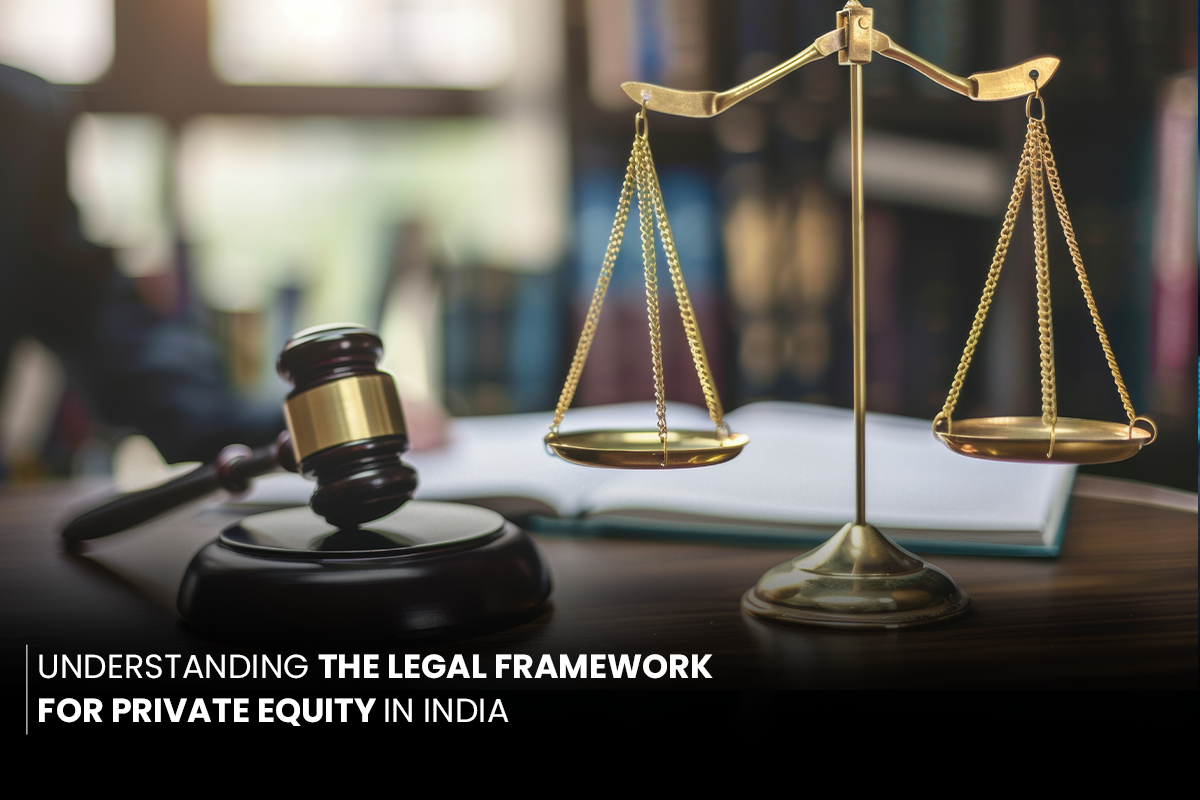In the first nine months of 2024, private equity investments in India surged by 39%, reaching $10.9 Billion.
This significant growth underscores the increasing influence of private equity firms in India’s economic landscape.
But what do private equity firms do, and how do they regulate operations in India?
Let’s delve into the roles of private equity firms and the legal frameworks that govern their activities in the country.
What Does Private Equity Firms Do?
Private equity firms invest in companies they believe have growth or improvement potential.
They buy ownership stakes, often in private or struggling companies, to increase the company’s value and eventually sell their stake for a profit.
Let’s take Flipkart as an example.
In 2018, the private equity firm Tiger Global had a significant stake in the growing e-commerce platform in India.
→ Tiger Global invested early, providing capital and guidance.
This helped Flipkart:
- Expand its operations
- Improve its technology
- Compete with global giants like Amazon
Over the years, Flipkart grew rapidly, and in 2018, Walmart acquired a 77% stake in the company for $16 billion.
Tiger Global, which had invested in Flipkart when it was much smaller, sold its stake during the Walmart deal, making a huge profit on its initial investment.
This example shows how private equity firms like Tiger Global invest in companies, help them grow, and then exit at the right time to make a profit.
Private Equity Laws in India
Private equity laws in India are put in place to ensure that companies and investors follow certain rules to protect everyone involved.
When private equity (PE) firms invest money in businesses, these laws keep things fair, clear, and safe.
Let’s break down the important parts.
Who Oversees Private Equity?
The Securities and Exchange Board of India (SEBI) oversees the private equity funds.
These funds are registered under SEBI’s Alternative Investment Funds (AIFs) Regulations, 2012.
Private equity funds usually fall under Category II AIFs, which means they cannot borrow large amounts of money, except for temporary needs.
The RBI also plays an important role, especially in overseeing foreign investments.
Here are 6 Key Legal Components of Private Equity:
1. Alternative Investment Funds (AIFs) Regulations:
PE funds must be registered with SEBI.
There are 3 categories of funds:
- Category I: Focuses on startups, early-stage ventures, and infrastructure.
- Category II: Includes most private equity funds that invest in various sectors without special restrictions.
- Category III: Uses more complex investment strategies, including borrowing and using derivatives.
2. Foreign Direct Investment (FDI) Policy:
Foreign investors need to follow India’s FDI policy. The policy sets limits on how much foreign investors can invest in certain sectors and sometimes requires government approval.
3. Companies Act, 2013:
This law governs how companies in India are formed and run.
It includes rules on company ownership, structure, and how businesses are managed.
4. Income Tax Act, 1961:
This law covers how private equity deals are taxed.
It includes rules on:
-capital gains (profits from selling investments)
-transfer pricing
-other tax-related matters.
5. Foreign Exchange Management Act (FEMA), 1999:
FEMA regulates the flow of money from foreign investors into Indian companies. It ensures that foreign investments follow India’s economic policies.
6. Sector-Specific Regulations:
Some sectors, like infrastructure, healthcare, and financial services have extra rules for private equity investments.
These sectors may need additional approvals from specific regulatory bodies.
Private equity laws in India are designed to ensure:
- Transparency: So everyone knows what’s happening with their money.
- Investor Protection: To keep investors’ money safe.
- Market Integrity: To make sure the market is fair and stable.
By understanding and following these regulations, private equity firms can operate smoothly in India while protecting their investors and staying within the law.
5 Private Equity Legalities You Must Know
When dealing with private equity in India, here are some important legal points to remember:
1. SEBI Registration:
Private equity funds should be registered with SEBI (Securities and Exchange Board of India) under Alternative Investment Funds (AIFs).
→ This ensures transparency and proper regulation.
2. FDI Rules:
The investments must follow India’s Foreign Direct Investment (FDI) policies when they involve foreigners. Some sectors may have restrictions or require government approval.
→ This ensures that money from other countries is invested in India.
3. Companies Act:
The Companies Act, of 2013, lays down rules on how businesses are structured and governed. Private equity firms must ensure that the companies they invest in follow these rules.
→ This ensures that Private equity firms operate fairly and legally.
4. Tax Regulations:
Private equity transactions are subject to taxes, especially on capital gains (profits made from selling an investment).
→ Understanding the tax laws is crucial to avoid unexpected liabilities.
5. Foreign Exchange Laws:
If money is moving in or out of India, the Foreign Exchange Management Act (FEMA) governs how these transactions happen.
→ This is to ensure they comply with India’s economic policies.
By keeping these legalities in mind, private equity firms can smoothly navigate the investment process in India.
Conclusion
When you understand what private equity firms do and truly grasp what the private equity laws in India are, it makes it easier for you to navigate the world of investments.
Private equity firms play a key role in helping companies grow, but they must operate within a legal framework that ensures:
- Compliance
- Transparency
- Protection for all parties involved.
Whether it’s:
- SEBI regulations
- Tax laws
- Foreign exchange rules
Staying informed about these legalities allows both investors and businesses to thrive in India’s dynamic market.



